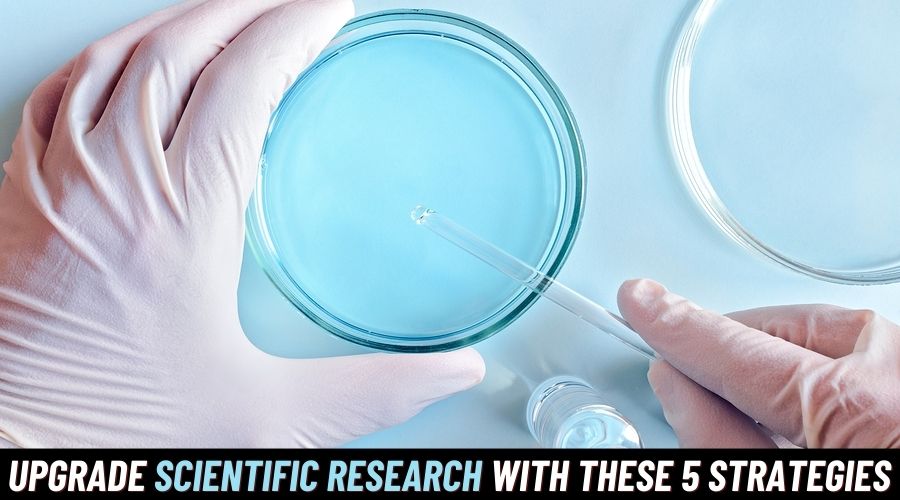As a scientist, you probably know the value of breakthroughs when it comes to our understanding of the world—be it discovering new galaxies beyond our solar system or identifying previously unknown diseases. A significant part of scientific research is staying ahead in the game and making sure that your work stands out. Unfortunately, that isn’t always the easiest thing to do.
You might get caught up in endless experiments and lost in a sea of data and literature. But fear not! With these 5 mindful tips, you can upgrade your scientific research and make your work stand out from the crowd. Let’s dive in!
1. Identify a clear research question
Having a clear research question is paramount to successful scientific research. It’s easy to get carried away by your experiments and forget the purpose of the research.
Your question should always be specific, well-defined, and relevant to current scientific knowledge. To come up with a more refined research question, make sure to perform extensive literature reviews and collect all the relevant data and information.
2. Develop a repeatable experimental design
Your experimental design should be able to precisely replicate your results every time you experiment. Designing a sound experiment requires complete knowledge of the scientific concepts being studied.
In addition, it should have reliable controls and include methods that are both feasible and measurable. A robust experimental design enhances the rigor, reproducibility, and validity of your research.
3. Use quality & relevant Tissue Samples
You can enhance your research and get more reliable data when you get quality and relevant tissue samples from a biospecimen provider.
A biospecimen provider’s sample collection and processing protocols are highly standardized, ensuring that the resulting tissue samples are of high quality. High-quality samples then produce reproducible and reliable results.
Read It Also: The Importance of Stool Testing for Digestive Health
4. Master data analysis
The way you analyze your data plays a crucial role in making your research successful. You should have a solid understanding of statistical analysis procedures, analytical software, and data visualization techniques to obtain accurate and precise results.
Ensure that you use appropriate statistical tests and data types and include relevant figures and tables to represent your data correctly.
5. Repeat your experiment and share your findings
Finally, make sure to repeat your experiments multiple times, documenting each repetition in your lab notebook. Repetition helps in verifying the accuracy and precision of your results and in identifying any potential confounding variables.
And once you’re done, share your findings with the scientific community by publishing them in relevant scientific journals or presenting them at conferences.
Follow These Steps to Improve Your Research
Upgrading your scientific research isn’t rocket science but rather an intentional and methodical approach. Identifying clear research questions, developing a repeatable experimental design, obtaining high-quality tissue samples from a reputable biospecimen provider, mastering data analysis, and repeated experimentation can significantly enhance your research.
These tips can help you stay ahead of the game and make your work stand out. Remember, the ultimate goal of science is to contribute to knowledge and society. By adopting these tips, you can achieve just that. Good luck with your research!
